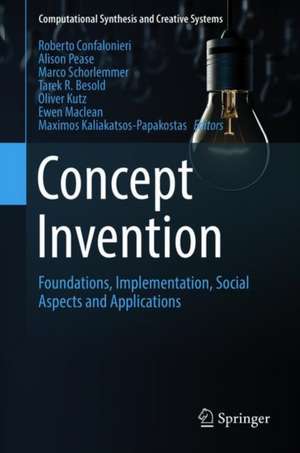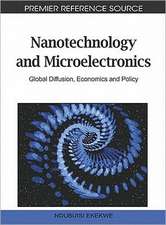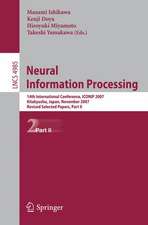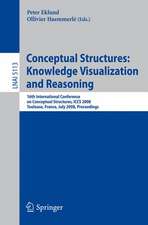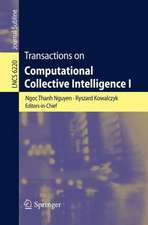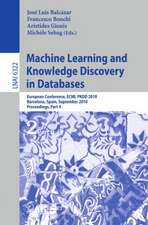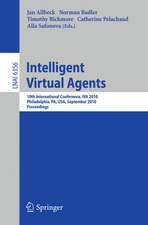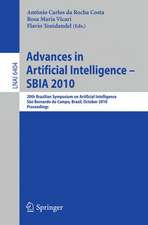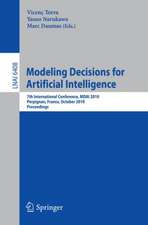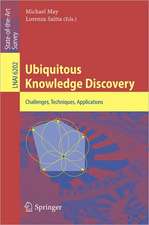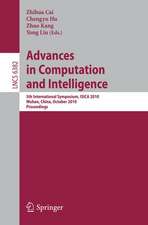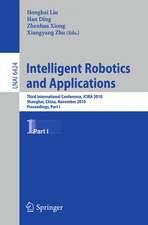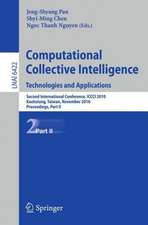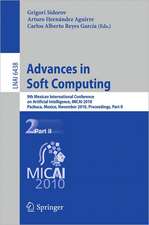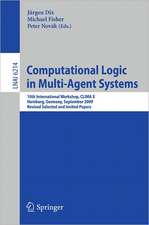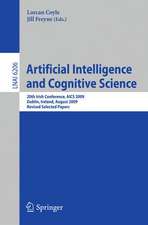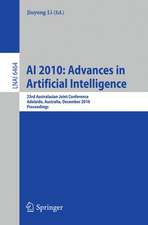Concept Invention: Foundations, Implementation, Social Aspects and Applications: Computational Synthesis and Creative Systems
Editat de Roberto Confalonieri, Alison Pease, Marco Schorlemmer, Tarek R. Besold, Oliver Kutz, Ewen Maclean, Maximos Kaliakatsos-Papakostasen Limba Engleză Hardback – 23 oct 2018
Featuring contributions from leading researchers in formal systems, cognitive science, artificial intelligence, computational creativity, mathematical reasoning and cognitive musicology, the book will appeal to readers interested in how conceptual blending can be precisely characterized and implemented for the development of creative computational systems.
| Toate formatele și edițiile | Preț | Express |
|---|---|---|
| Paperback (1) | 646.47 lei 43-57 zile | |
| Springer International Publishing – 24 ian 2019 | 646.47 lei 43-57 zile | |
| Hardback (1) | 652.73 lei 43-57 zile | |
| Springer International Publishing – 23 oct 2018 | 652.73 lei 43-57 zile |
Preț: 652.73 lei
Preț vechi: 815.91 lei
-20% Nou
Puncte Express: 979
Preț estimativ în valută:
124.90€ • 130.74$ • 103.96£
124.90€ • 130.74$ • 103.96£
Carte tipărită la comandă
Livrare economică 31 martie-14 aprilie
Preluare comenzi: 021 569.72.76
Specificații
ISBN-13: 9783319656014
ISBN-10: 3319656015
Pagini: 294
Ilustrații: XX, 294 p.
Dimensiuni: 155 x 235 mm
Greutate: 0.62 kg
Ediția:1st ed. 2018
Editura: Springer International Publishing
Colecția Springer
Seria Computational Synthesis and Creative Systems
Locul publicării:Cham, Switzerland
ISBN-10: 3319656015
Pagini: 294
Ilustrații: XX, 294 p.
Dimensiuni: 155 x 235 mm
Greutate: 0.62 kg
Ediția:1st ed. 2018
Editura: Springer International Publishing
Colecția Springer
Seria Computational Synthesis and Creative Systems
Locul publicării:Cham, Switzerland
Cuprins
Social Aspects of Conceptual Blending.- Enabling Technologies for Concept Invention.- Complex Numbers, Blending Lists, and Experiments with Alumni.- Formal Conceptual Blending in Generation and Co-invention in Mathematics.- Chord Blending, and Jazz Mathematical Cross-blending.- Conceptual Blending in Melodic Harmonization.- Evaluating Creativity.- Discussion, Conclusion and Future Perspectives.
Recenzii
“The book is a well-researched multidisciplinary study that is useful for a wide audience interested in the practical aspects of concept invention and expansion and manipulation techniques. … The work includes a good level of detail, a rich set of references, and pointers to the tools and systems prototyped and presented, making the reader capable of setting up several of the example projects presented. Each chapter is self-contained.” (Ahmed Nagy, Computing Reviews, May 25, 2021)
Textul de pe ultima copertă
This book introduces a computationally feasible, cognitively inspired formal model of concept invention, drawing on Fauconnier and Turner's theory of conceptual blending, a fundamental cognitive operation. The chapters present the mathematical and computational foundations of concept invention, discuss cognitive and social aspects, and further describe concrete implementations and applications in the fields of musical and mathematical creativity.
Featuring contributions from leading researchers in formal systems, cognitive science, artificial intelligence, computational creativity, mathematical reasoning and cognitive musicology, the book will appeal to readers interested in how conceptual blending can be precisely characterized and implemented for the development of creative computational systems.
Featuring contributions from leading researchers in formal systems, cognitive science, artificial intelligence, computational creativity, mathematical reasoning and cognitive musicology, the book will appeal to readers interested in how conceptual blending can be precisely characterized and implemented for the development of creative computational systems.
Caracteristici
Introduces a computationally feasible, cognitively inspired formal model of concept invention Describes concrete implementations and applications in the fields of musical and mathematical creativity Features contributions from leading researchers in formal systems, cognitive science, artificial intelligence, computational creativity, mathematical reasoning and cognitive musicology
